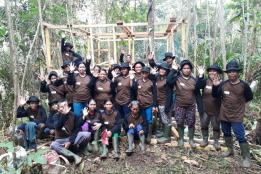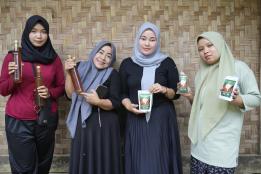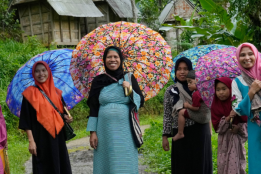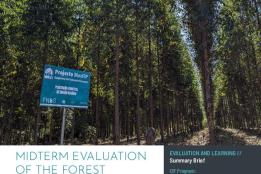A multistakeholder workshop in Jakarta assessed the results of the country’s Forest Investment Program – starting with the 1.8 million tons CO2 eq reduced or avoided – and drew lessons for future investments.
Indonesia is home to some of our planet’s richest ecosystems, contributing major climate and biodiversity benefits. But, in the early 2000’s, millions of people in Indonesia and the region were affected by high levels of deforestation, forest degradation, and smoke pollution. The country took action, notably through the development of an investment plan for CIF’s Forest Investment Program (FIP). With $48.6 million in funding implemented through the World Bank (WB) and the Asian Development Bank (ADB), Indonesia became in 2012 one of the first country to partner with FIP.
After 12 years of delivery, challenges, and successes, Indonesia’s investment plan has now reached completion, with 1.8 million tons CO2 eq reduced or avoided and counting. This is equivalent to taking almost 430,000 gas-powered passenger cars off the road for one year.
To unpack these results, CIF introduced an innovative concept on the heels of a successful pilot in Zambia. In March 2024, a “close-out” workshop held in Jakarta gathered insights from a wide range of national and local stakeholders on the impact achieved, drawing lessons for future programs and investments. This is coherent with CIF’s unique results system put in place more than a decade ago, leading to significant learning, knowledge-generation, and implementation feedback loops between the relevant actors of Indonesia’s forest agenda.
The Jakarta workshop gathered over 60 participants – representing multilateral development banks, civil society, and government officials. Indonesia’s Ministry of Environment and Forestry took part actively through various stakeholders, from director-level decision makers to coordinators of relevant forest management units (FMUs). FMUs are the smallest governmental management units delivering forest services in Indonesia.
As the workshop progressed, it became clear that pilot FMUs that were part of FIP benefited considerably from the program. Their actions created a blueprint to be replicated across the country, which features 600 FMUs overall. “Despite some challenges, FIP played a catalytic role in transforming forest management: the Forest Management Units were targeted and operationalized,” said Matthew Harris, CIF’s Monitoring and Evaluation Specialist, who facilitated the discussions.
For example, FIP was a game changer in the FMU led by Chandra Irawan, covering 2,509 hectares in the Sintang district of West Kalimantan. He explains: “it is very much vital and very important for us to demonstrate good forestry and environmental management. [But] five of our villages were really left behind in terms of economic development.” This situation incentivized people to work in nearby palm oil fields instead of nurturing the forest. To remedy this, the FMU developed clean water facilities and implemented livelihood strategies: agroforestry, beekeeping, aquaculture, and weaving - helping mostly female traditional weavers to bring their products to market. “We also increased the capacity of human resources, as well as the institution by delivering multiple training or courses, [and study visits]. And we received solar panels to bring electricity.”
Because of all these activities combined, Chandra Irawan said his community designates the FIP implementation period as “the period of enlightenment.”
In Sintang and elsewhere, FIP’s successful models for agroforestry and assisted natural regeneration demonstrate a viable path forward for forest protection interventions across Indonesia, although additional efforts are needed to ensure communities can keep these activities going over the long term, and more areas are covered.
The results close-out workshop also looked in detail at how FIP directly contributed to a broad range of diverse livelihood benefits, illustrating for many communities the positive linkages between sustainable forest and land management practices, and their own lives and welfare. “About 50 % of Indonesia’s communities depend on forests for their livelihoods and they have a very deep relation to this ecosystem,” explained Franka Braun, Lead Environmental Specialist at the World Bank. Reported benefits included income, employment, entrepreneurship, access to finance, education, health, climate resilience, and access to knowledge assets.
Other results covered during the interactive discussions included gender outcomes, the demand-driven approach for the Dedicated Grant Mechanism and social forestry schemes, as well as managing and protecting forests with the purpose of supporting environmental, social, and rural development, or social forestry. “In the social forestry concept, we trust people, and the people will protect and secure their land,“ concluded Ir. Catur Endah Prasetiani, Director for Social Forestry Business Development at Indonesia’s Ministry of Environment and Forests.
The new insights on results and impact generated in Indonesia will be put into practice right away, with lessons learned shared with countries preparing investment plans as part of CIF’s new Nature, People, and Climate investment program.








